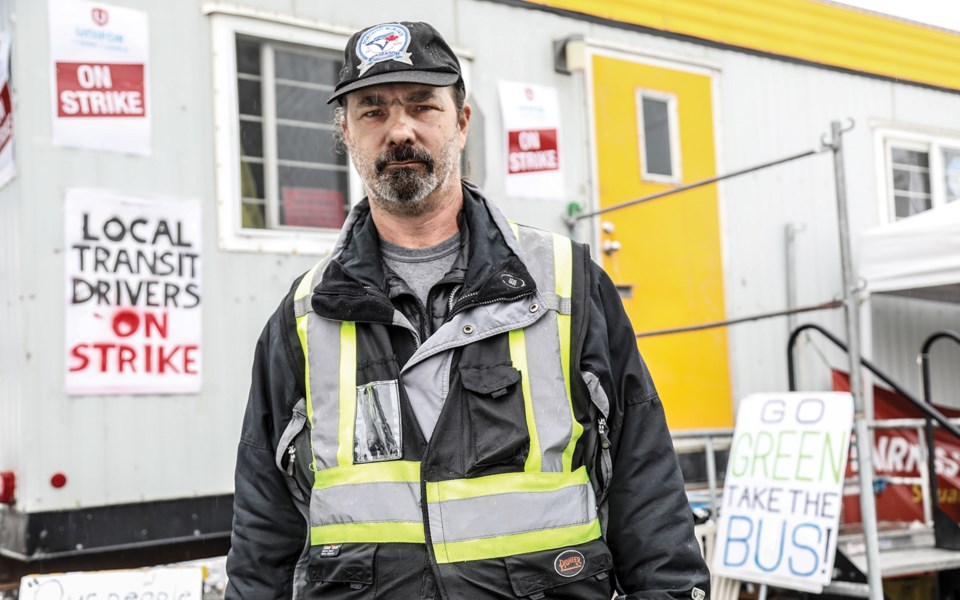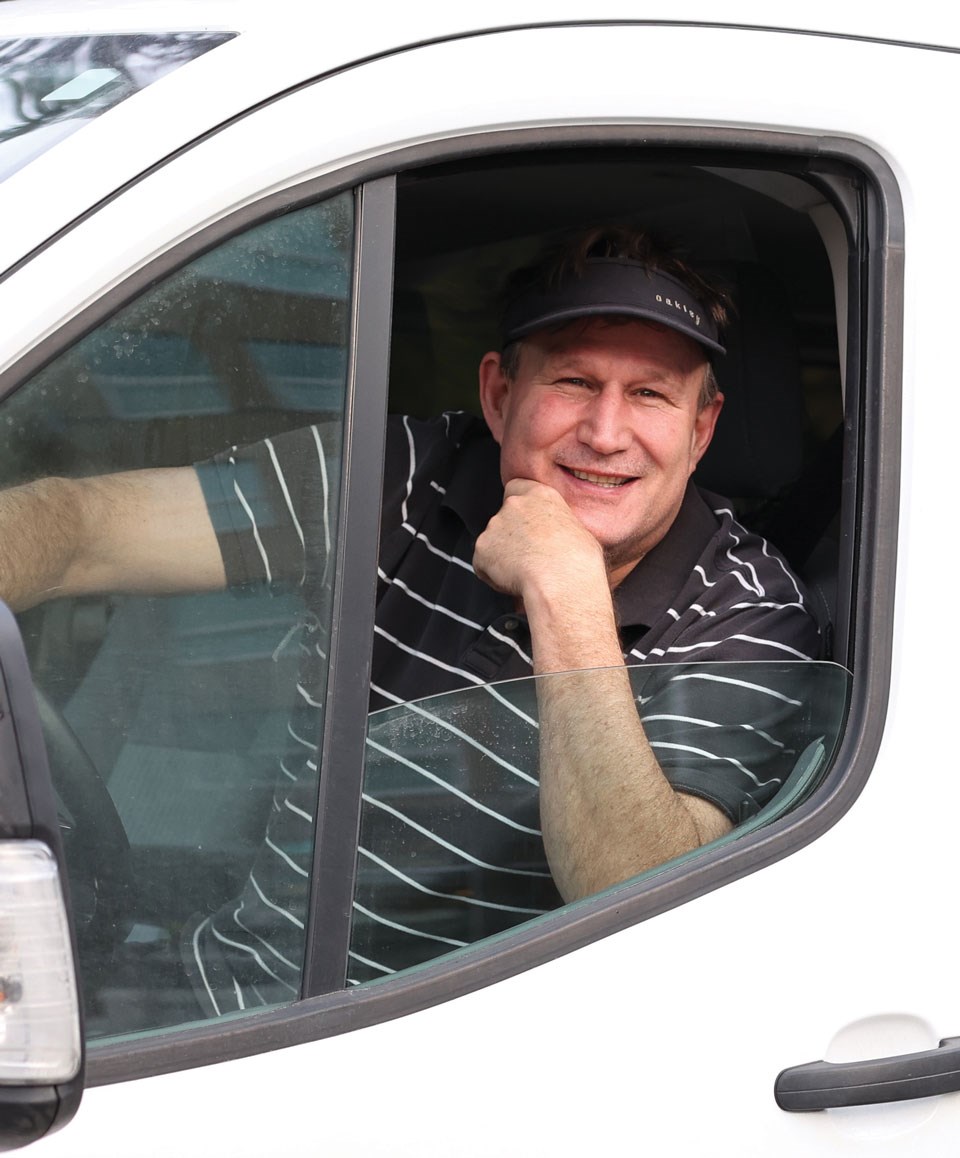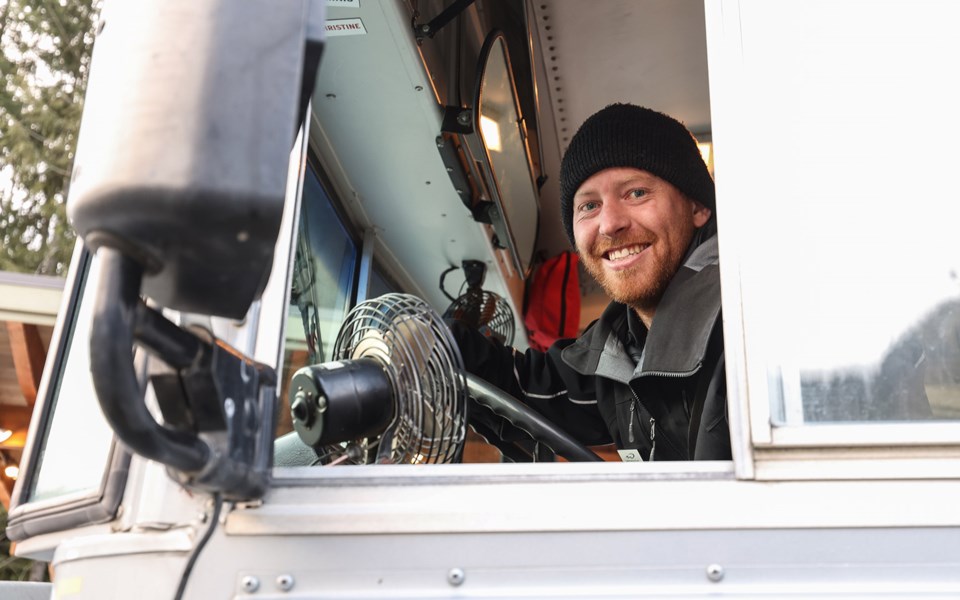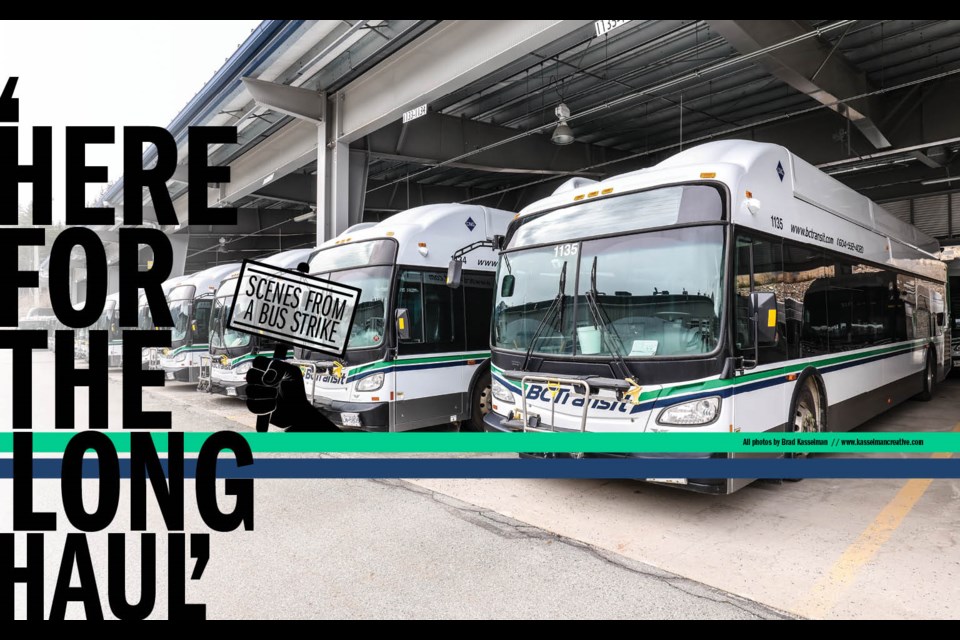Now well into its eighth week, the Sea to Sky transit strike shows no signs of letting up, effectively handcuffing a tourism town already desperate to recover some of the losses of the past two years.
And while the impact on Whistler’s tourism engine is significant, of course, it’s always a community’s most vulnerable that bear the brunt of it: hard-working bus drivers who’ve watched as the community they quite literally help run has become untenable for them to live in; an underpaid working class forced to shell out money they don’t have on cab fares; and struggling small-business owners who already have a tough-enough time filling shifts as is before having to contend with the complete shutdown of an essential public service.
As negotiations ground to a halt again last week between Pacific Western Transportation, the Alberta-based company contracted by BC Transit to deliver transit in the corridor, and Unifor Local 114, the union representing local transit operators, Pique sent photographer Brad Kasselman to capture some scenes from the bus strike, showing the day-to-day effects it has had on the community. Starting on March 17, Kasselman documented everything from the rush of St. Patrick’s Day revellers that night, to frustrated bus drivers and average residents speaking out, before heading to the Whistler Transit bus depot, which continues to sit mostly empty 60 days into the strike.
-Brandon Barrett

“Pacific Western [Transportation] didn’t handle this. We’ve been in negotiations for two years, and I think this is the third time they’ve come to the table in those two years, so I don’t know. It’s like they figure they’ll wait us out and make us out to be the bad guys.”

“I’ve got two small children who go to local schools here and they’re on spring break now and they’re absolutely stranded. They have no way to get to their social group. They can’t go see their friends. Their friends can’t come visit, so they’re just sitting at home right now on their phones or watching TV.”

“I’ve never been on strike before. I’ve never been out of work before. So it’s hard. I can’t save money. I need to rely on my savings to pay my bills, pay my mortgage. So it’s tough. It’s very stressful. It’s a very stressful time. I’ve actually never been this stressed out before. So it’s a very big impact on me personally, and my fellow drivers and even my wife as well. She feels it as well because I’m not happy … We are not going to bend. We have absolutely no reason to go back for any deal that doesn’t include full benefits for everybody, a good wage increase and a pension. None of us are going to give in. We are all solid. We’re here for the long haul.”


Andrew Bacon, Whistle Ride founder and driver “It’s put a definite strain on our business in the sense that the demand for rides has been enormous. And we’re doing our best to take care of our valued customers to the best of our abilities. Certainly, like every other company, we wish we had more employees, we wish we had more drivers. But at the end of the day, with our scheduled rides and with the technology in our app, we’re moving as many people as we can and doing the best under the circumstances … On a side note, we support the bus drivers, we want to see them back to work. We hope that they’re able to resolve this as quickly as possible and we can get those who need the service the most back on the roads.”

Matt Hardy, Patty Deveraux and Kelly McMahon, WB staff Pique: How have you been affected by the bus strike? MH: “Wet feet.” KM: “We have to walk up the hill [to staff housing] every day, which is not their problem. But the [groomer] cats come down every single day. It’s quite dangerous. Everything comes down. Everything comes out in the evening, in the night, when it’s dark, so it’s kind of dangerous.”

Exchange student Taka Ozama is a 20-year-old Japanese exchange student who works part-time as a dishwasher at Il Caminetto. Prior to the transit strike, he rode the bus four times a day: to and from the hill in the morning, and to and from work at night.

“I’ve been out here nearly a decade. Working for the mountain, I think it’s fantastic that they’ve managed to set up these buses in the morning and afternoon to get us to and from work … It’s a huge pain on my days off, though. I really can’t get anywhere. I don’t have a car, so yeah, I’m hoping it’s just going to be resolved as soon as possible. Make everyone happy, give the drivers what they want.”

“I can’t tell you the amount of people that I’ve driven who are like, ‘I don’t know how long I can afford to keep doing this.’ Like, afford to actually keep living here and be able to work the job that they have. It’s just ridiculous. It’s sad.”

Dubh Linn Gate marked Whistler’s first in-person celebration of St. Patrick Day in three years this March 17, and without transit service available, scores of Whistlerites had to find their own way home, whether that meant shelling out money for a taxi, carpooling, or walking home.

Curtis Elliott is a snowcat mechanic, moonlighting as a driver for Whistler Blackcomb’s staff shuttle, which ferries employees to and from work several times a day.

Lara Varty Whistler Blackcomb ski instructor relies on the staff shuttle to get to work every day.







